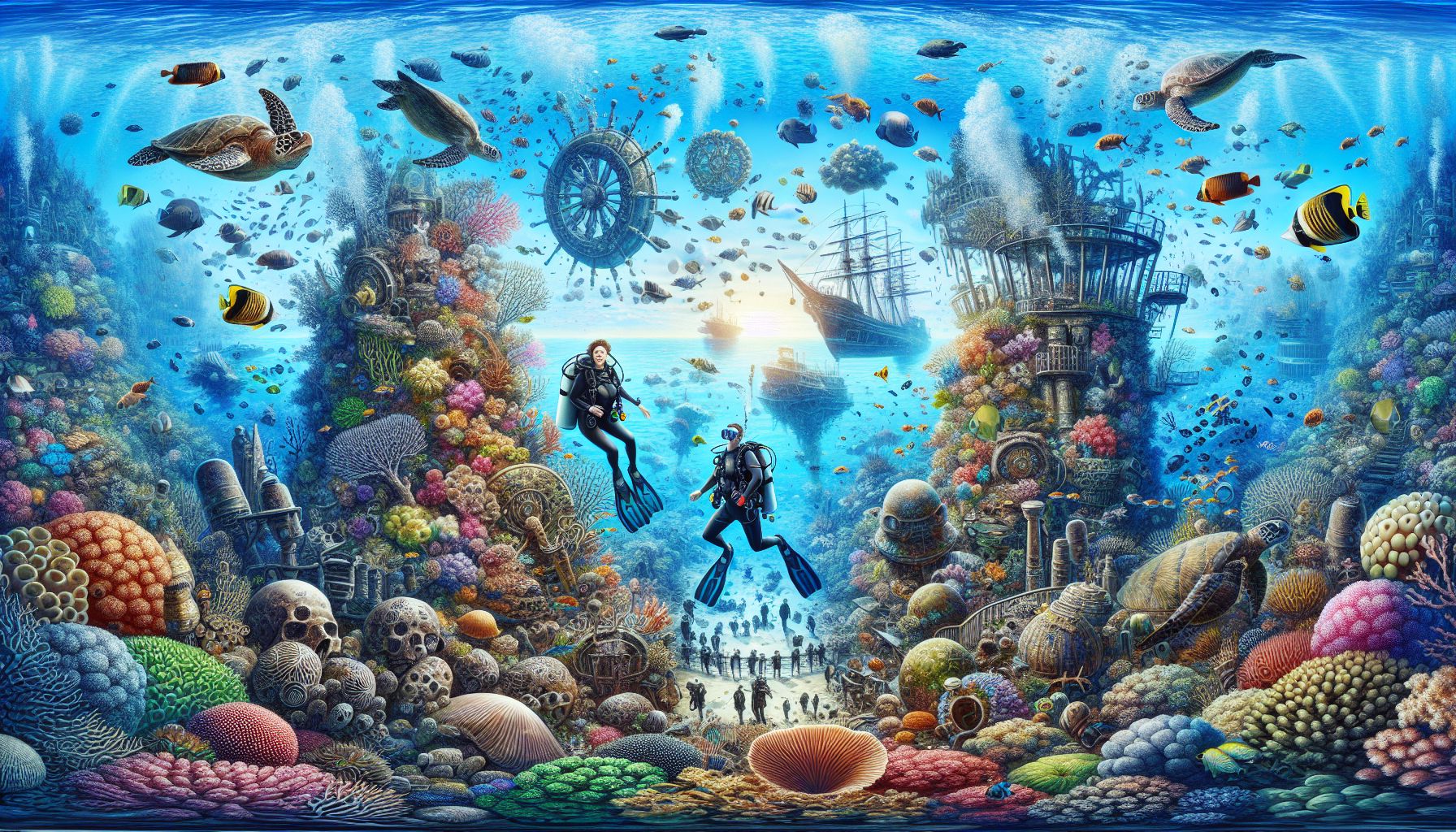Scuba diving is more than just a sport or recreational activity; it’s an exploration of the underwater world that gives you the opportunity to encounter ecosystems most people will never see firsthand. The weightless adventure of breathing underwater is a magical experience that opens up an entirely new vista bursting with vibrant life and color. This comprehensive guide will take you through the essentials of scuba diving, the equipment you need, the places you can explore, and the precautions to take, to ensure that your underwater journey is safe and unforgettable.
What is Scuba Diving?
Scuba diving is the act of diving underwater with the use of self-contained underwater breathing apparatus (SCUBA) which allows the diver to breathe while exploring beneath the surface of the water. The term SCUBA is an acronym for “Self-Contained Underwater Breathing Apparatus.”
Understanding the Basics of Scuba Diving
Before you dive in, it’s essential to grasp the basic principles, techniques, and language of scuba diving.
Buoyancy Control: Fundamental to diving, buoyancy control is about managing your weight to float (neutral buoyancy), sink (negative buoyancy), or rise (positive buoyancy) in the water.
The Bends: Also known as decompression sickness, this condition occurs if a diver ascends too quickly, causing nitrogen bubbles to form in the bloodstream. To prevent it, divers must ascend slowly and perform safety stops when necessary.
Pressure and Equalization: Underwater, pressure increases as you descend. It’s vital to equalize the pressure in air spaces in your body, predominantly your ears and sinuses, to avoid discomfort or injury.
Scuba Diving Gear: An Overview
Diving gear enables you to explore underwater realms comfortably and safely. Here’s a snapshot of the essential equipment:
- Diving Mask: Provides clear vision underwater and allows you to see the breathtaking sights.
- Scuba Tank: Contains the breathing gas, typically air or an air-nitrogen-oxygen mixture.
- Regulator: Delivers breathing gas from your tank to your mouth at ambient pressure.
- Buoyancy Compensator (BC or BCD): A vest that controls your buoyancy and holds your gear.
- Fins: These are worn on the feet to propel you efficiently through the water.
- Wetsuit/Drysuit: Depending on the water temperature, these suits insulate your body against the cold.
- Dive Computer: Gives real-time information on depth, dive time, and decompression status.
- Weight System: Used to offset the buoyancy of other equipment and your wetsuit or drysuit.
- Accessories: This can include a dive knife, underwater lights, compass, cameras, and more depending on dive conditions and purpose.
Getting Certified: The Importance of Proper Training
To become a scuba diver, you must be certified through a recognized diving organization such as PADI (Professional Association of Diving Instructors), NAUI (National Association of Underwater Instructors), or SSI (Scuba Schools International). Certification involves:
- Classroom learning to understand diving theory.
- Confined water dives to learn diving skills.
- Open water dives for practical experience.
These courses ensure that you learn the essential skills required for safe diving practices, including handling equipment, understanding pressure effects, and emergency procedures.
Best Destinations for Scuba Diving
The world is full of incredible diving locations, each offering its unique underwater landscapes and marine life. Here are just a few famous spots:
- Great Barrier Reef, Australia: The world’s largest coral reef system is a paradise for divers.
- Palau, Micronesia: Known for its clear waters, cave systems, and rich marine diversity.
- Galápagos Islands, Ecuador: This biologically diverse area offers the chance to swim with sea lions, iguanas, and hammerhead sharks.
Diving Safely: Understanding the Risks
While scuba diving is an exhilarating experience, it’s important to acknowledge and minimize the risks:
- Always dive within your limits.
- Never hold your breath while ascending.
- Dive with a buddy and use the buddy system.
- Check your gear thoroughly before a dive.
- Stay well-hydrated and fit for diving.
- Follow dive tables or use a dive computer to track your exposure to pressure.
- Be aware of marine life and respectful of ocean habitats.
Essential Skills for Emergency Situations
As with any adventure sport, it’s crucial to be prepared for emergencies. This includes knowing how to:
- Share air with a buddy in case of an out-of-air situation.
- Perform a controlled emergency swimming ascent if necessary.
- Administer basic first aid and CPR.
- Recognize and handle possible dive-related illnesses.
The Future of Scuba Diving: Conservation and Responsibility
With the privilege of exploring underwater landscapes comes the responsibility of conserving them. As a diver, you need to be aware of conservation issues and practice environmentally-friendly diving. Support organizations that protect marine life and habitats, and be aware of your impact when visiting sensitive environments.
Conclusion
Scuba diving is truly an awe-inspiring activity, offering limitless opportunities to explore, witness stunning marine biodiversity, and embark on adventures that push your personal boundaries. Always remember, while the underwater world is full of wonders, it demands our respect. By diving safely and responsibly, you’ll not only ensure your safety but also contribute to preserving this precious environment for generations to come.
Sources
- Professional Association of Diving Instructors (PADI) – https://www.padi.com/
- National Oceanic and Atmospheric Administration (NOAA) – Scuba Diving Explained – https://www.noaa.gov/education/resource-collections/marine-life/scuba-diving-explained
- Diver’s Alert Network (DAN) – Dive Safety and Emergency Procedures – https://www.diversalertnetwork.org/
Thank you for journeying with me through the exciting world of scuba diving. Whether it’s unlocking the mysteries of the deep or simply enjoying the tranquility of the underwater realm, diving provides an unmatched adventure. Dive in, the ocean is waiting!
